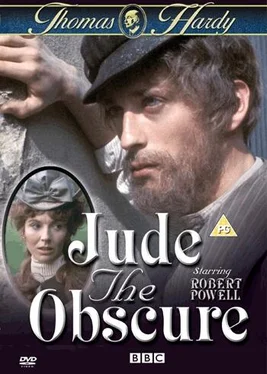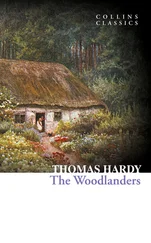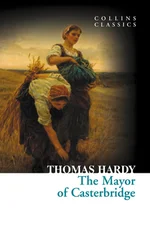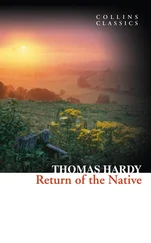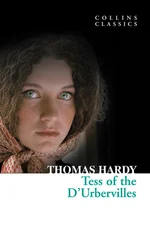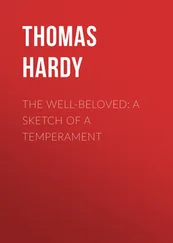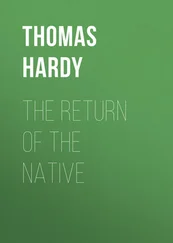Again Sue looked at the hanging little frock and at the socks and shoes; and her figure quivered like a string. "I am a pitiable creature," she said, "good neither for earth nor heaven any more! I am driven out of my mind by things! What ought to be done?" She stared at Jude, and tightly held his hand.
"Nothing can be done," he replied. "Things are as they are, and will be brought to their destined issue."
She paused. "Yes! Who said that?" she asked heavily.
"It comes in the chorus of the Agamemnon . It has been in my mind continually since this happened."
"My poor Jude—how you've missed everything!—you more than I, for I did get you! To think you should know that by your unassisted reading, and yet be in poverty and despair!"
After such momentary diversions her grief would return in a wave.
The jury duly came and viewed the bodies, the inquest was held; and next arrived the melancholy morning of the funeral. Accounts in the newspapers had brought to the spot curious idlers, who stood apparently counting the window-panes and the stones of the walls. Doubt of the real relations of the couple added zest to their curiosity. Sue had declared that she would follow the two little ones to the grave, but at the last moment she gave way, and the coffins were quietly carried out of the house while she was lying down. Jude got into the vehicle, and it drove away, much to the relief of the landlord, who now had only Sue and her luggage remaining on his hands, which he hoped to be also clear of later on in the day, and so to have freed his house from the exasperating notoriety it had acquired during the week through his wife's unlucky admission of these strangers. In the afternoon he privately consulted with the owner of the house, and they agreed that if any objection to it arose from the tragedy which had occurred there they would try to get its number changed.
When Jude had seen the two little boxes—one containing little Jude, and the other the two smallest—deposited in the earth he hastened back to Sue, who was still in her room, and he therefore did not disturb her just then. Feeling anxious, however, he went again about four o'clock. The woman thought she was still lying down, but returned to him to say that she was not in her bedroom after all. Her hat and jacket, too, were missing: she had gone out. Jude hurried off to the public house where he was sleeping. She had not been there. Then bethinking himself of possibilities he went along the road to the cemetery, which he entered, and crossed to where the interments had recently taken place. The idlers who had followed to the spot by reason of the tragedy were all gone now. A man with a shovel in his hands was attempting to earth in the common grave of the three children, but his arm was held back by an expostulating woman who stood in the half-filled hole. It was Sue, whose coloured clothing, which she had never thought of changing for the mourning he had bought, suggested to the eye a deeper grief than the conventional garb of bereavement could express.
"He's filling them in, and he shan't till I've seen my little ones again!" she cried wildly when she saw Jude. "I want to see them once more. Oh Jude—please Jude—I want to see them! I didn't know you would let them be taken away while I was asleep! You said perhaps I should see them once more before they were screwed down; and then you didn't, but took them away! Oh Jude, you are cruel to me too!"
"She's been wanting me to dig out the grave again, and let her get to the coffins," said the man with the spade. "She ought to be took home, by the look o' her. She is hardly responsible, poor thing, seemingly. Can't dig 'em up again now, ma'am. Do ye go home with your husband, and take it quiet, and thank God that there'll be another soon to swage yer grief."
But Sue kept asking piteously: "Can't I see them once more—just once! Can't I? Only just one little minute, Jude? It would not take long! And I should be so glad, Jude! I will be so good, and not disobey you ever any more, Jude, if you will let me? I would go home quietly afterwards, and not want to see them any more! Can't I? Why can't I?"
Thus she went on. Jude was thrown into such acute sorrow that he almost felt he would try to get the man to accede. But it could do no good, and might make her still worse; and he saw that it was imperative to get her home at once. So he coaxed her, and whispered tenderly, and put his arm round her to support her; till she helplessly gave in, and was induced to leave the cemetery.
He wished to obtain a fly to take her back in, but economy being so imperative she deprecated his doing so, and they walked along slowly, Jude in black crape, she in brown and red clothing. They were to have gone to a new lodging that afternoon, but Jude saw that it was not practicable, and in course of time they entered the now hated house. Sue was at once got to bed, and the doctor sent for.
Jude waited all the evening downstairs. At a very late hour the intelligence was brought to him that a child had been prematurely born, and that it, like the others, was a corpse.
Sue was convalescent, though she had hoped for death, and Jude had again obtained work at his old trade. They were in other lodgings now, in the direction of Beersheba, and not far from the Church of Ceremonies—Saint Silas.
They would sit silent, more bodeful of the direct antagonism of things than of their insensate and stolid obstructiveness. Vague and quaint imaginings had haunted Sue in the days when her intellect scintillated like a star, that the world resembled a stanza or melody composed in a dream; it was wonderfully excellent to the half-aroused intelligence, but hopelessly absurd at the full waking; that the first cause worked automatically like a somnambulist, and not reflectively like a sage; that at the framing of the terrestrial conditions there seemed never to have been contemplated such a development of emotional perceptiveness among the creatures subject to those conditions as that reached by thinking and educated humanity. But affliction makes opposing forces loom anthropomorphous; and those ideas were now exchanged for a sense of Jude and herself fleeing from a persecutor.
"We must conform!" she said mournfully. "All the ancient wrath of the Power above us has been vented upon us, His poor creatures, and we must submit. There is no choice. We must. It is no use fighting against God!"
"It is only against man and senseless circumstance," said Jude.
"True!" she murmured. "What have I been thinking of! I am getting as superstitious as a savage! … But whoever or whatever our foe may be, I am cowed into submission. I have no more fighting strength left; no more enterprise. I am beaten, beaten! … 'We are made a spectacle unto the world, and to angels, and to men!' I am always saying that now."
"I feel the same!"
"What shall we do? You are in work now; but remember, it may only be because our history and relations are not absolutely known… Possibly, if they knew our marriage had not been formalized they would turn you out of your job as they did at Aldbrickham!"
"I hardly know. Perhaps they would hardly do that. However, I think that we ought to make it legal now—as soon as you are able to go out."
"You think we ought?"
"Certainly."
And Jude fell into thought. "I have seemed to myself lately," he said, "to belong to that vast band of men shunned by the virtuous—the men called seducers. It amazes me when I think of it! I have not been conscious of it, or of any wrongdoing towards you, whom I love more than myself. Yet I am one of those men! I wonder if any other of them are the same purblind, simple creatures as I? … Yes, Sue—that's what I am. I seduced you… You were a distinct type—a refined creature, intended by Nature to be left intact. But I couldn't leave you alone!"
Читать дальше
